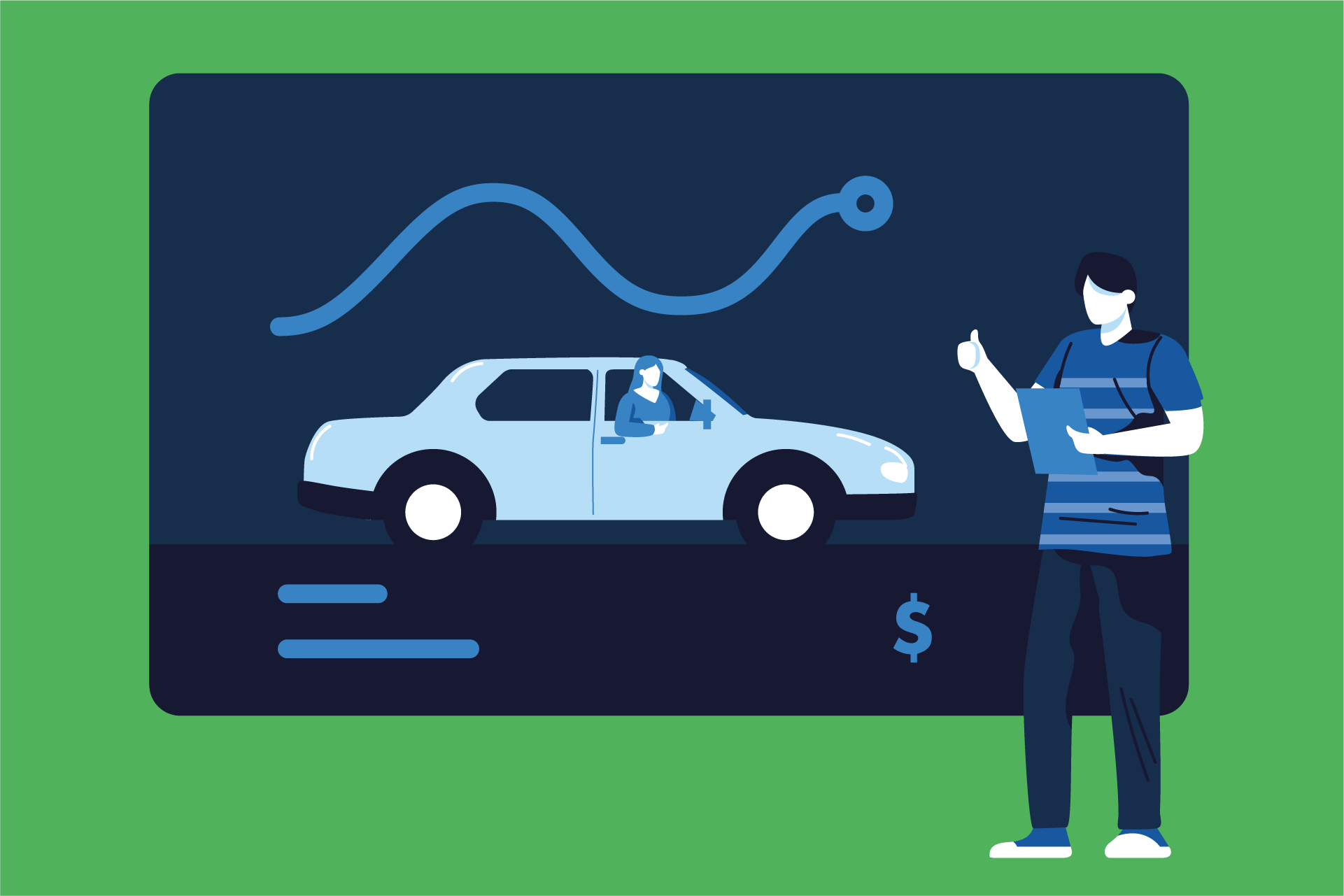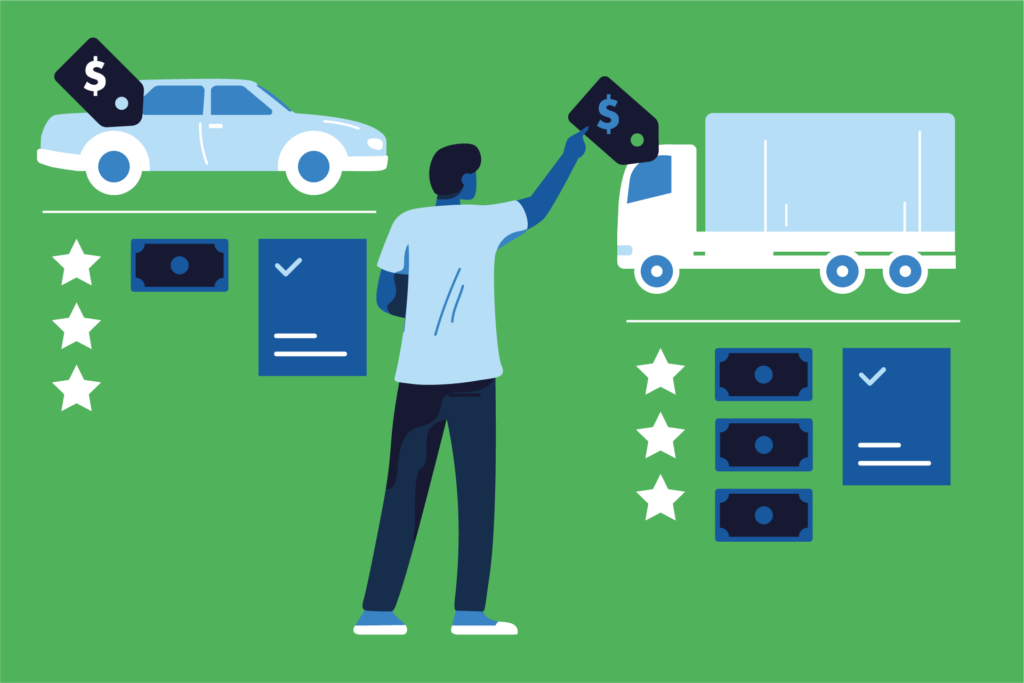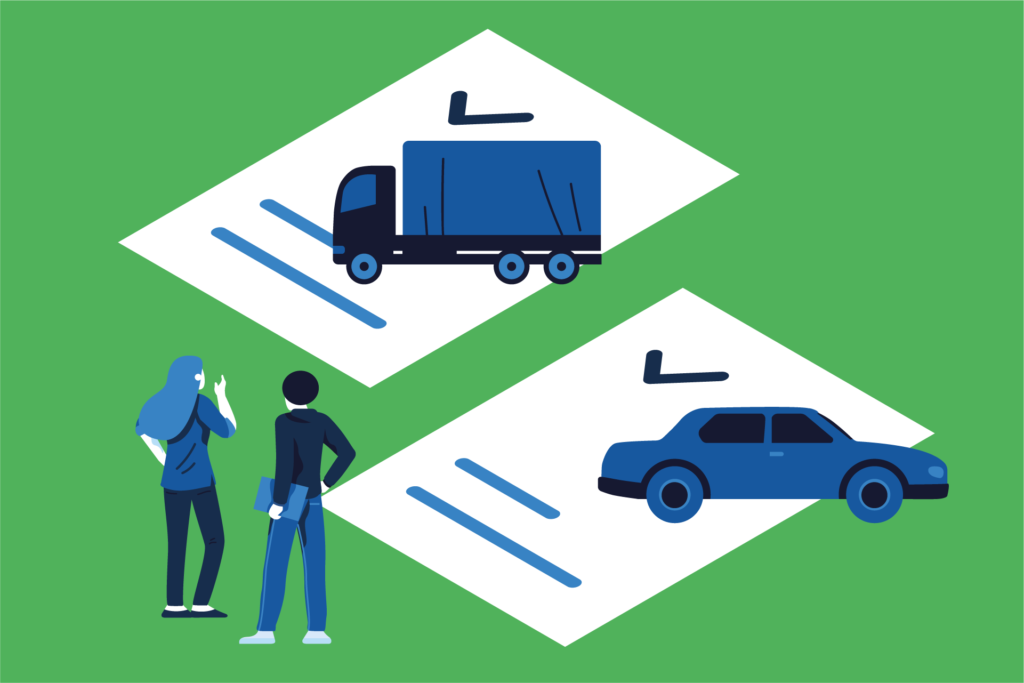Our goal at Lending Valley is to provide all small business owners access to the best loans possible for their business. You can rest assured we will get you the best rates in the market!

It’s becoming more and more popular to lease a vehicle (car or truck etc.) under your business, as opposed to taking out a personal loan and leasing it that way. This is true even for small companies – you don’t have to be a large corporation to benefit from this process.
If you’re an employee, many companies tend to offer schemes in which you can lease a car. The easiest way to do this through your business is to go for one of these schemes. If you lease a car through your business, you will pay the standard company car tax, or “benefit in kind” tax, as legislation effectively classes your leased vehicle as an addition to your income.
The last thing any sensible company wants to do is commit capital unnecessarily. With such an unpredictable business climate at present, our cash flow can represent all the difference between success, plodding along and surviving, and taking a huge downward turn. That’s why leasing a vehicle often makes total sense for most companies.
Sometimes, it’s more practical for some businesses to have newer and more impressive vehicles that they can use to drive to meetings and other corporate events. Some business owners prefer not to put too much wear and tear on their vehicles, and may also have considered the standard IRS mileage deduction rate to be not particularly favorable or as beneficial as the process of deducting a direct expense.
Other business owners wish to expand upon their current sales team or add even more representatives to their business, and therefore want to maintain a consistent and branded theme; let alone the benefits of being able to record the reliability of their negotiations with clients.
Irrespective of your reasoning behind considering the company vehicle lease route, the main thing is that you understand the facts and process so that you don’t end up paying way too much for the lease or, worse still, being penalized for utilizing the vehicle in a manner that is considered contrary to the lease agreement that you have signed up for. If you follow the steps we’re about to explain here, you should be able to obtain your ideal vehicle for your company but at a price and terms that you can afford.
So, leasing a car rather than owning one can really free up funds for the company to spend more beneficially and profitably. The company could use the money saved by leasing rather than all-out purchasing to take on new members of staff, which, in turn, will help the company to further develop and grow – a win-win situation for all.

It’s not necessarily the right move for every business owner to lease vehicles through their company. In line with the IRS guidelines, some sole proprietors and partnerships should find it more beneficial to lease a car through their personal account and then write off the business expenses or apply a standard mileage deduction.
If your company has a more complex business structure, you’ll be driving a vehicle 100% for business, or you desire to procure a fleet of business vehicles of some sort or another, it is much more practical to split out the lease costs by means of a business lease. It’s also worth noting that taxation legislation changes considerably if you have a vehicle fleet in excess of five vehicles in your business, or if your vehicle is used to hire out, e.g. if you’re using it as a taxi or for Uber.
It also makes sense to consider how long you are anticipating having ownership of the vehicle. Perhaps you like the concept of keeping the car for quite a long period of time (in excess of ten years) so that you can benefit from the lower tax brackets, licensing, and insurance in years to come. If this is the case, then leasing won’t be your thing, as you won’t be using the vehicle for that many years.
It goes without saying that leasing is the perfect choice for anyone who wants a new vehicle every few years or so. It’s also a sensible solution for those who don’t have a great deal of cash for a large down payment, and aren’t that bothered about forming any sentimental attachment to the vehicle in question or feeling like the vehicle is fully in their ownership.
It’s fairly standard for the majority of consumers to think of a car dealership as the first port of call on their search for the right car. However, it really does pay to shop around – so don’t restrict your opportunities to just the usual, standard showrooms. Take a look at the National Vehicle Leasing Association (NVLA). It offers a free membership system and you can have access to leasing companies around the United States of America. Once you’ve signed up, you can take advantage of information about dealers and also a broad range of private leasers that may have the perfect vehicle for you – and at a price that you can really afford.
Some banks and automobile manufacturers also offer their own leasing schemes; if you are using your new vehicle as part of a ride-share program, these companies tend to have leasing programs available which are intended specifically for their drives.

Although leasing is often a really affordable and dependable way to obtain a newer model of vehicle in your fleet, it can be tricky to navigate, as the payment structures and systems can be quite confusing. Obviously, if you purchase your car outright, you only have a very few factors to take into consideration. The leasing option can be truly difficult to understand as each company will probably offer various terms, payment specifications, pricing options, and even penalties and provisions. If you refer to AllBusiness.com, a potential leaser would really need to get to know these key terms and definitions before they signed up for any vehicle:
It’s not only the monthly payments that you’ll need to consider when calculating your lease payments; you will also have to work out budgeting for any down payments required, the sales tax, title and also the licensing fees associated with the scheme, notwithstanding any local or council taxes that go hand in hand with purchasing a new vehicle.
So we’ve come this far, but now we need to put all this information into practice and make sure you get the deal you want and that is right for your circumstances. Let’s say you’ve chosen a car, and that you know what the MSRP is. You’ve discussed and negotiated the cap cost to a figure that means you’re paying sensible and affordable monthly payments coupled with a low and reasonable down payment. It would now be wise to work out whether or not you are aiming for an open or a closed lease.
What’s the difference you say? An open lease contract is usually chosen for business vehicle leases, and the buyer commits to paying any difference between the residual value and the actual resale value. However, if you drive the car too much or even cause damage to it, the dealer can request that you pay out the money they would have received if they had sold the vehicle at the agreed-upon residual value.
That said, with a closed lease, you don’t consider the residual value at the end of the lease, you have to take into consideration any mileage that exceeds the mileage agreed in the original contract and payment for damages. So if you make sure that you keep within your mileage terms and you don’t cause any damage to the vehicle, you can ensure that you can leave the closed lease at the end of the term without incurring any surprise costs.
It’s worth bearing in mind that company leases are usually structured on an open basis because businesses tend to put way more miles on their cars than anyone would for personal use. Although it may be cheaper in the long term to pay the difference in the value than for any excess mileage.
Every company situation is different. Here’s a list of some of the considerations when choosing whether to lease or buy:
It’s true to say that leases can be a bit on the tricky side, and several professional business people tend to put off committing to a lease contract because of all the niggly conditions and pricing. However, if you make sure you research all the packages and schemes offered by both dealerships and leasing companies, and you take your time to compare the pricing structures etc., you can end up leaving the leasing company with a new car that lends your company a more professional appearance, makes you feel that you have a reliable vehicle, and also gives you some flexibility in terms of your budget for travel and transport.
Many business owners are leasing cars for company use. The attractive monthly costs and the ability to swap out cars frequently so as to keep in line with new technology and safety features are really quite appealing. As to whether or not a leased car is the right solution for your business, well, you have to consider all the options that we’ve given you in this article, and draw your own conclusion.
The upshot is – if you want an affordable, foreseeable regular monthly payment for a new vehicle that lends your company that professional edge, and, at the same time, want to free up your cash and not have to pay for an entire car – then it’s really worth checking out what leasing has to offer.